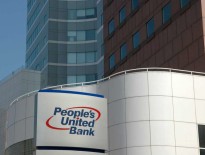Bank of America Corp.’s Merrill Lynch unit admitted to misleading brokerage customers about which firms processed their trades and agreed to pay a $42 million fine under a settlement with the U.S. Securities and Exchange Commission announced on Tuesday.
The settlement follows a similar agreement with the New York attorney general in a related probe nearly three months ago, under which Merrill Lynch also admitted to wrongdoing and agreed to pay a $42 million fine.
Merrill “fell far short of the standards expected of broker-dealers in our markets,” preventing customers from making informed decisions about their orders and broker-dealer relationships, Stephanie Avakian, co-director of the SEC enforcement division, said in a statement.
The SEC said Merrill engaged in a scheme known as “masking,” including the alteration of trade confirmations, to deceive customers into thinking it was processing their trades in-house, making its trading services appear more active and sophisticated and reducing fees it would pay to exchanges.
Merrill was also accused of concealing from customers the possibility that high-frequency traders who traded in its dark pool, known as Instinct X, might be counterparties.
Dark pools are private trading venues designed to let people quietly trade shares, often to get large orders done with minimal price movement.
The SEC said the masking ran from May 2008 to May 2013, and that Merrill kept it hidden after it ended. It said Merrill falsely told customers that more than 15.8 million orders worth over $141 billion had occurred in-house.
Bank of America referred to a statement in made on March 23 about the New York settlement, when it said: “At all times we met our obligation to deliver the best prices to clients. About five years ago, we addressed the issues concerning communicating to clients about where their trades were executed.”
Merrill was acquired by Bank of America in January 2009.




 |
| 
